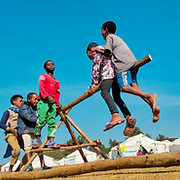
Rescue Generations Ethiopia

Supporting impoverished communities in Ethiopia.
Rescue Generation Ethiopia (RGE) is a visionary, board-led National Non-governmental Organization (NNGO) established on April 23, 2020, by a dedicated
group of Ethiopian volunteers. You can view our registration certificate on the
The founding members were united by a shared passion
and commitment to address the deep-rooted development gaps and multi-faceted
challenges that have long plagued the Ethiopian community.
With a special focus on
marginalized and neglected populations, RGE strives to be a catalyst for transformative
change across Ethiopia’s diverse regions, ensuring that even the most vulnerable are
not left behind.


Rooted in biblical principles, RGE’s mission is heavily inspired by Proverbs 24:11-12, which calls us to
“Rescue those being led away to death; hold back those staggering towards slaughter”
This powerful scripture encapsulates the essence of RGE’s work, driving the organization to go beyond charity and engage in holistic interventions that seek not only to meet immediate needs but also to create sustainable, long-term solutions.
RGE’s work is addressing not just physical needs,
but also the spiritual, emotional, social, and economic challenges that individuals and
communities face.
RGE's Current Initiatives
The following are RGE's current ongoing programs.
1. Child Sponsorship Program
2. Health Program
3. Education Program
Child Sponsorship Program
RGE’s child sponsorship program supports vulnerable children through direct one-on-one sponsorship. Currently, 62 children are being sponsored—33 from Nedjo and 29 from Gelan. Support provided to sponsored children includes:
-
School supplies (stationery, uniforms)
-
School fees
-
Hygiene materials and dignity kits
-
Psychosocial and life skills training
-
Multi-purpose cash support
-
Medical expenses
-
Protection
-
Food support (e.g., wheat flour, spaghetti, edible oil)
Support is given quarterly to all sponsored children. This program operates without external donors, relying on internal resources, though additional funding could help
expand its reach.



Life skills training provided to sponsored children.
Psychosocial Support
Beyond provision of support for subsistence RGE is working and wants to work at wide scale on the mindset of the generation for better tomorrow.
RGE is supporting the sponsored children to revive from the burden of life and explore their potential and help them release their God-given capacity to be fruitful in and productive citizen.
RGE arranges life skill training on a monthly basis and provides training to the sponsored children in the age range of 10 to 18. The life skill training manual RGE is using will boost the self-esteem of the children to overcome negative influence of their peers and positively influence them. It also helps in having good communication skills (both intra-communication and inter-communication), helps them to make wise choices, enable them to have emotional intelligence.
Health Program
RGE offers free medical services through volunteer missions. Over the past two years,
1,288 individuals have benefited, with 1,220 people treated for malaria in remote,
conflict-affected areas of West Wollega (Begi and Kondala woredas in four health
centers).
The remaining 68 individuals were treated in Gelan Sub-city in Sida Awash
health center. During these missions, approximately 5,000 people received health
education on topics such as malaria prevention, hygiene, sanitation, and proper drug
adherence.


Education Program
RGE has distributed 2,208 books and school materials worth 55,153.53 pounds (8,850,486.96 Ethiopian Birr) to a variety of educational institutions.
These include:
-
3 universities,
-
1 Teacher Training College (TTC),
-
5 primary schools,
-
4 high schools,
-
1 public library, and
-
2 faith-based organizations.



Here are additional contributions that RGE has made in previous years.
RGE would like to unlock existing local resources and gear them toward filling of complex socioeconomic gaps one step at a time. Our recent efforts surrounded provision of basic necessities to communities that were impoverished.

Donations from RGE members as well as from other donors to buy food items for disadvantaged community members.

Clothing donations were distributed to families.

Basic school necessities such as exercise books, pens and pencils were purchased and distributed to students.

Vision, Mission, Goals

Vision
To see transformed lives of disadvantaged people through compassionate
sharing, proper care, and stewardship services.

Mission
To create a better environment and build capacity for resource mobilization,
foster a culture of mutual support, and strengthen systems and structures to ensure
equity in the fight against poverty.

Goals
To contribute to improving the quality of life by creating self-reliant, empowered,
accountable, and positive generations.
Our Objectives
RGE was established in order to improve the life quality of people by mobilizing volunteers and enhancing voluntary services in the areas of existing development gaps which encompass youth behavioral change communication, Food Security and Environmental protection, Health Program, Education program, care and support of orphans and vulnerable children and Provision of relief and rehabilitation services in emergencies and capacity building services to existing government and social institutes.
To decrease the percentage of most vulnerable children.
. To improve the quality of life for families in extreme poverty.
To build peace through Conflict Resolution
To increase access to both preventive and curative health services to people in need.
To decrease percentage of unemployment among youth and women
To decrease the percentage of youths who are subjected to different risk behaviors.
To improve Access to quality education
To ensure Food Security through Natural Resource management, environmental protection and by reducing adverse